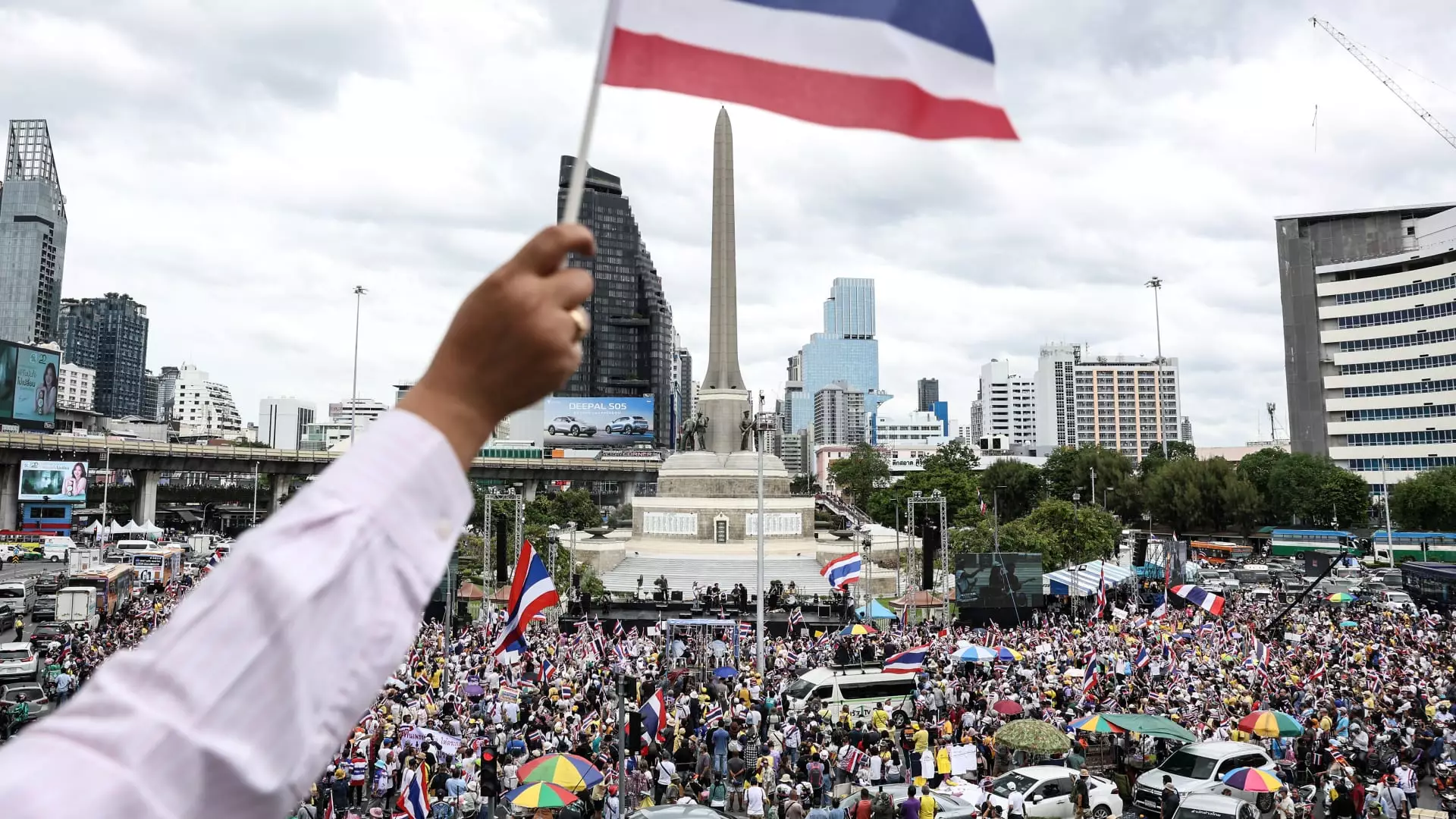Thailand today finds itself teetering on the brink of renewed political chaos, driven by an increasingly embattled Prime Minister Paetongtarn Shinawatra and a surge of nationalist outrage. The recent protests in Bangkok, the largest since her rise to power in 2023, reveal deep-seated anxieties not just about border tensions with Cambodia, but about the government’s competence and legitimacy. These demonstrations, orchestrated by the United Force of the Land—a nationalist coalition with a history of challenging Shinawatra regimes—signal a dangerous revival of the political unrest that has repeatedly destabilized Thailand over the last two decades.
Paetongtarn’s government is ensnared in a complex dilemma. With a fragile coalition that recently lost a critical partner, the Bhumjaithai Party, to dissent over alleged compromises to Thai sovereignty, her administration’s position is precarious. The controversy sparked by the leaked phone call in which Paetongtarn seemed to placate Cambodia’s former premier and openly criticized a Thai military figure hands control to the military’s deeply entrenched influence. In a country where the armed forces often act as kingmakers, such actions are politically explosive, making her position vulnerable to both parliamentary and judicial challenges.
Economic Struggles Amplify Political Vulnerabilities
Beyond the immediate political fallout, Thailand’s faltering economy faces the threat of further deterioration amid this turmoil. The government’s stated priority of economic revitalization now seems in jeopardy. The timing of the protests and political crisis could not be worse as investor confidence wanes and social divisions deepen. In a nation still recovering from the disruptions of previous coups and economic setbacks, political instability serves only to undermine progress and threatens to reverse fragile gains.
Paetongtarn’s response to the protests—pledging non-retaliation and focusing on peaceful management—reflects a cautious pragmatism but also perhaps a lack of political clout. While respecting democratic rights is commendable, it remains unclear if her government has the resolve or capacity to manage the mounting pressures without conceding significant ground. The simmering conflict highlights a broader systemic issue in Thai politics: the uneasy balance between civilian governance, military influence, and nationalist populism often sharpens, producing volatility instead of stability.
Judicial and Diplomatic Undercurrents Shape an Uncertain Future
The invocation of legal avenues against the prime minister by senators reflects another worrisome trend—judicial activism as a tool to effect political change. The Constitutional Court and national anti-corruption bodies have occasionally served roles beyond mere legal oversight, at times acting as instruments of political interference in Thailand’s recent history. With these institutions now scrutinizing Paetongtarn, the country faces the troubling prospect of political resolution not at the polls but in courtrooms.
Simultaneously, the public denunciation of Paetongtarn and her family by Hun Sen, Cambodia’s long-time authoritarian leader and former ally of the Shinawatras, escalates tensions on both diplomatic and personal fronts. The bitter rhetoric is unprecedented and threatens to inflame nationalist passions, complicating Thailand’s foreign relations just when careful diplomacy is needed most. That the Thai government responded by emphasizing dialogue over confrontation is a necessary but fragile stance amid rising antagonism.
Thailand’s political trajectory under Paetongtarn Shinawatra is emblematic of deeper structural fragility: powerful entrenched interests, unresolved historical grievances, and shifting alliances that hinder coherent governance. Without a genuine commitment to democratic resilience and institutional independence, the country risks slipping back into the cycle of unrest and authoritarian interventions that have repeatedly derailed its progress.


Leave a Reply